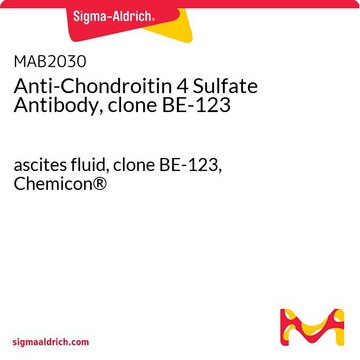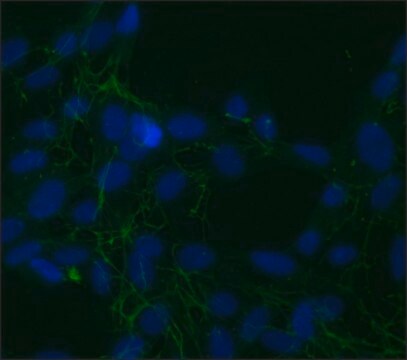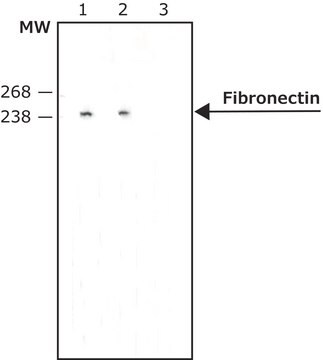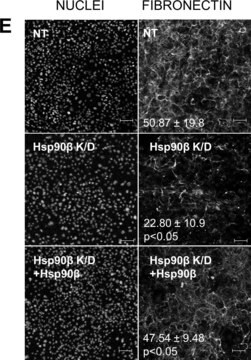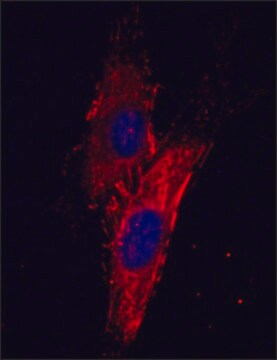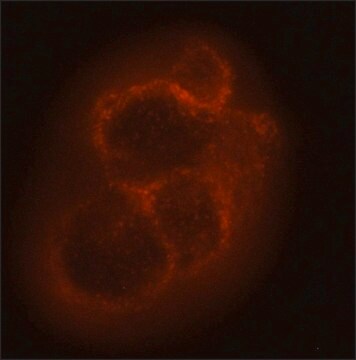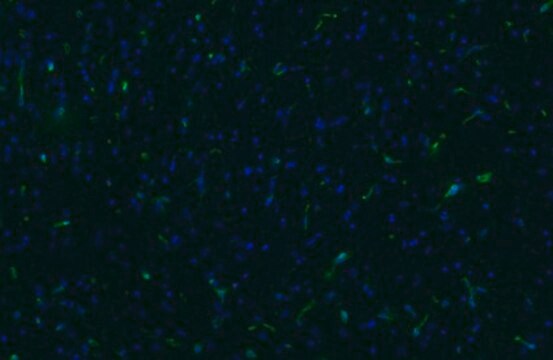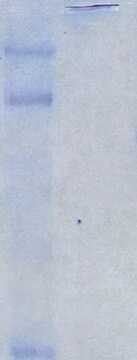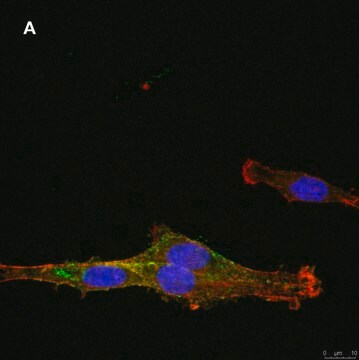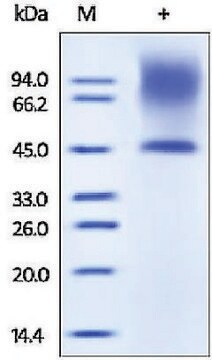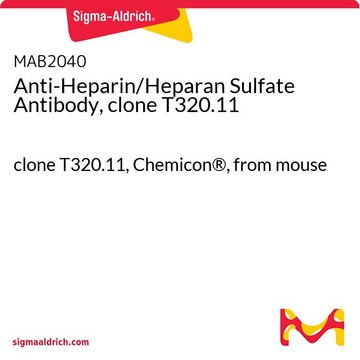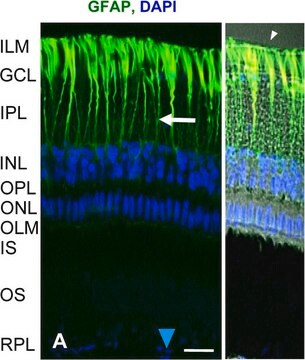SAB4200696
Anti-Chondroitin Sulfate antibody, Mouse monoclonal
clone CS-56, purified from hybridoma cell culture
Sinonimo/i:
CSPG, chondroitin sulfate proteoglycan
About This Item
Prodotti consigliati
Origine biologica
mouse
Livello qualitativo
Forma dell’anticorpo
purified from hybridoma cell culture
purified immunoglobulin
Tipo di anticorpo
primary antibodies
Clone
CS-56, monoclonal
Forma fisica
buffered aqueous solution
Reattività contro le specie
mouse, chicken, bovine, human
Confezionamento
antibody small pack of 25 μL
Concentrazione
~1 mg/mL
tecniche
immunofluorescence: 2.5-5 μg/mL using bovine BMGE cells
immunohistochemistry: 2.5-5 μg/mL using heat-retrieved formalin-fixed, paraffin-embedded human colon cancer sections and Biotin/ExtrAvidin ®-Peroxidase staining system.
Isotipo
IgM
Condizioni di spedizione
dry ice
Temperatura di conservazione
−20°C
modifica post-traduzionali bersaglio
unmodified
Informazioni sul gene
human ... CSPG4(1464)
Descrizione generale
Chondroitin sulfate proteoglycan 4 (CSPG4) or nerve/glial antigen 2 (NG2) is encoded by the gene mapped to human chromosome 15q24.2-15q24.3. It is a growth-inhibitory chondroitin sulfate proteoglycan (CSPG) produced after spinal cord injury. It has a single glycosaminoglycan (GAG) chain. The protein belongs to the transmembrane chondroitin sulfate proteoglycans family.
Immunogeno
Azioni biochim/fisiol
Stato fisico
Stoccaggio e stabilità
Altre note
Note legali
Esclusione di responsabilità
Non trovi il prodotto giusto?
Prova il nostro Motore di ricerca dei prodotti.
Codice della classe di stoccaggio
12 - Non Combustible Liquids
Classe di pericolosità dell'acqua (WGK)
WGK 1
Punto d’infiammabilità (°F)
Not applicable
Punto d’infiammabilità (°C)
Not applicable
Certificati d'analisi (COA)
Cerca il Certificati d'analisi (COA) digitando il numero di lotto/batch corrispondente. I numeri di lotto o di batch sono stampati sull'etichetta dei prodotti dopo la parola ‘Lotto’ o ‘Batch’.
Possiedi già questo prodotto?
I documenti relativi ai prodotti acquistati recentemente sono disponibili nell’Archivio dei documenti.
I clienti hanno visto anche
Therapeutic Target in Malignant Cancer
Il team dei nostri ricercatori vanta grande esperienza in tutte le aree della ricerca quali Life Science, scienza dei materiali, sintesi chimica, cromatografia, discipline analitiche, ecc..
Contatta l'Assistenza Tecnica.